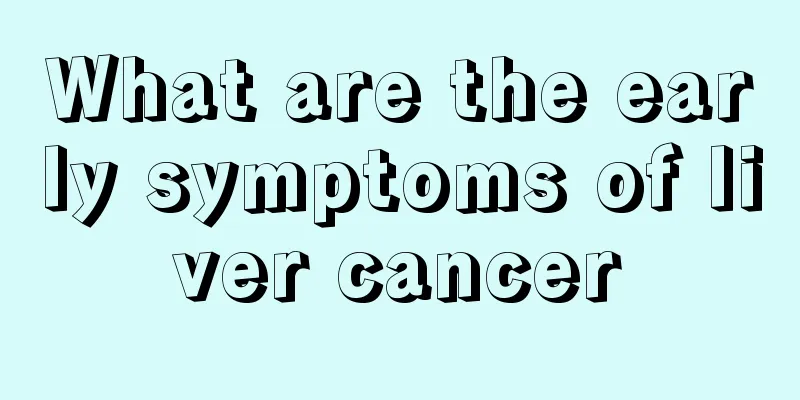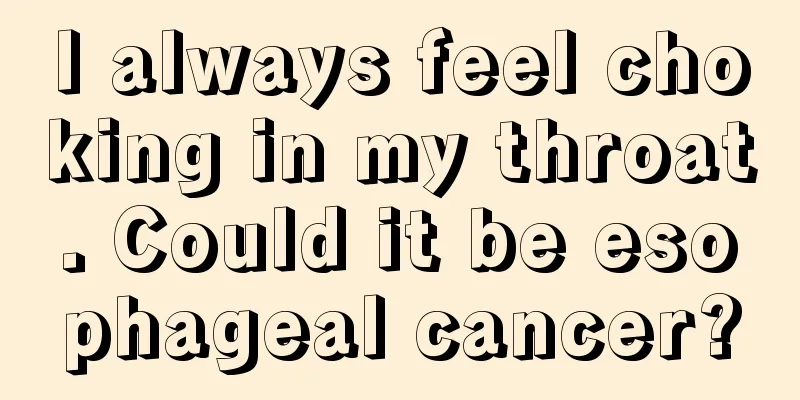What are the early symptoms of liver cancer

|
The early symptoms of liver cancer are usually hidden, but as the disease progresses, they may gradually become apparent. Early symptoms of liver cancer include abdominal discomfort, digestive system symptoms, weight loss, fatigue, jaundice, etc. The specific introduction is as follows: 1. Abdominal discomfort: You may feel abdominal pain, bloating or discomfort, which may be caused by the growth and spread of the tumor. For abdominal discomfort, a detailed examination should be performed first to determine the cause. If it is confirmed to be early-stage liver cancer, surgical resection, ablation therapy or drug therapy can be considered to remove or control the tumor, thereby relieving abdominal discomfort. 2. Digestive system symptoms: including loss of appetite, nausea, vomiting, indigestion, etc. These symptoms may be related to the impact of the tumor on liver function. For digestive system symptoms, in addition to the treatment of the tumor itself, symptomatic drug treatment can also be taken, such as the use of antiemetics and drugs that promote digestion, to improve the patient's quality of life. 3. Weight loss: Unexplained weight loss may occur, which may be due to the tumor consuming the body's energy and nutrients. The key to treating weight loss is to control the growth and spread of the tumor, while strengthening the patient's nutritional support and ensuring adequate nutritional intake to maintain weight and physical strength. 4. Fatigue: You may feel tired and weak, and your physical strength will be significantly reduced. The treatment of fatigue also needs to target the tumor itself to reduce the burden of the tumor on the body. At the same time, patients can strengthen their physical fitness and improve their body resistance through proper rest and exercise. 5. Jaundice: Jaundice is caused by the tumor compressing or invading the bile duct of the liver, which prevents bile from being discharged normally. Jaundice is manifested by yellowing of the skin and sclera, darkening of urine, etc. The treatment of jaundice requires first relieving the bile duct obstruction, such as surgical removal of the tumor or bile duct drainage, etc., and anti-jaundice drugs can also be used as auxiliary treatment. Although the early symptoms of liver cancer are relatively hidden, they can still be discovered and appropriate treatment measures can be taken through careful observation and timely examination. For liver cancer patients, early detection, early diagnosis and early treatment are the key to improving survival rate and quality of life. For people with high risk factors for liver cancer, such as chronic hepatitis B or hepatitis C virus infection, patients with cirrhosis, etc., relevant examinations should be carried out regularly to detect and treat liver cancer in time. At the same time, maintaining good living habits and eating habits is also one of the important measures to prevent liver cancer. |
<<: Is gastric cancer stage T2 serious?
>>: Is targeted breast cancer medication effective?
Recommend
Can walnuts cure pharyngitis?
Patients with pharyngitis should pay close attent...
Order of foot scraping
People who pay attention to health care know that...
Does the pain in the middle back spine have anything to do with the lungs?
Pain in the middle spine of the back may be relat...
Is the blood from the lower body caused by cervical cancer contagious?
Cancer is not contagious, don't worry. It won...
Will I get fat if I sit after a meal?
There is a saying that everyone knows, "Take...
Will blisters after burns leave scars?
Burns are a common type of injury in daily life. ...
What is Percutaneous Transhepatic Biliary Drainage? A Treatment Technique
There are many serious diseases, such as severe a...
The difference between rock sugar and white sugar
Sugar is indispensable in our daily life. The nut...
What medicine should I take for conservative treatment of advanced bile duct cancer
Emotional factors are very important for the deve...
What are the latest treatments for atrial fibrillation
Heart disease is one of the killers that threaten...
Why does the left side of my back hurt when I breathe?
What are the causes of pain on the left side of t...
How to treat liver disease facial appearance
Liver disease facial features are more common in ...
Can Korean ginseng and donkey-hide gelatin be taken together?
Korean ginseng and donkey-hide gelatin are both c...
Does smoking affect kidney stones?
Many people like to smoke. Although smoking is ba...
How long does it take for rectal medication to be absorbed
Rectal administration is a common method of drug ...









